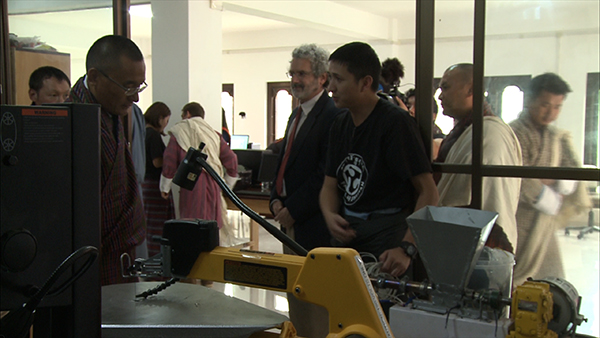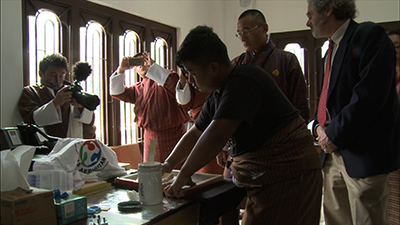 Prime Minister Dasho Tshering Tobgay inaugurated the country’s first fabrication laboratory (Fablab) in the capital yesterday. The Fablab is a digital platform, which helps to translate ideas into products.
Prime Minister Dasho Tshering Tobgay inaugurated the country’s first fabrication laboratory (Fablab) in the capital yesterday. The Fablab is a digital platform, which helps to translate ideas into products.
The lab boasts a network of over one thousand laboratories across the globe, collaborating research and innovative projects.
Fablab is often hailed as a library of technology enabling invention by providing access to tools for digital fabrication. This laboratory shares an evolving inventory to make almost anything, allowing people and projects to be shared.
“You can make the products that you currently buy but then around that the lab lets you make inventions, create businesses, study and take technical classes and connect to the modern world to connect traditional practices in Bhutan with global practices,” said Professor Neil Gershenfeld, the Director of the Center for Bits and Atoms of the Massachusetts Institute of Technology (MIT).
The Fablab Bhutan, according to Professor Neil who is also the creator of global fablab, will act as a magnet for people who have bright inventive ideas. It will offer possibilities for education and entrepreneurship activities through its global network.
Designs and processes developed in Fablab can be protected and sold however an inventor chooses, but should remain available for individuals to use and learn from.
“One of the opportunities is a number of cities are part of what is called Fabcity project where cities buy products and make trash,” said Professor Neil Gershenfeld.
“The idea of Fabcity project is you stay connected to global networks for data. So bits come and go but the atoms stay in the city. The cities can produce what they consume and Bhutan is joining that collaboration, initially at the village and city level, but looking to do at the country level.”
Some of the projects currently under the Fablab Bhutan include low cost weather station for farmers, solar water pump, 3D printed chairs, a chair using recycled plastic and fibers from the stalks of banana trees, and agro-processing and packaging lab- which is the state-of-the-art food process equipment for production of fruits and vegetables.
The Fablab Bhutan was supported by expertise from Massachusetts Institute of Technology and donation from Solidworks Corporation.









